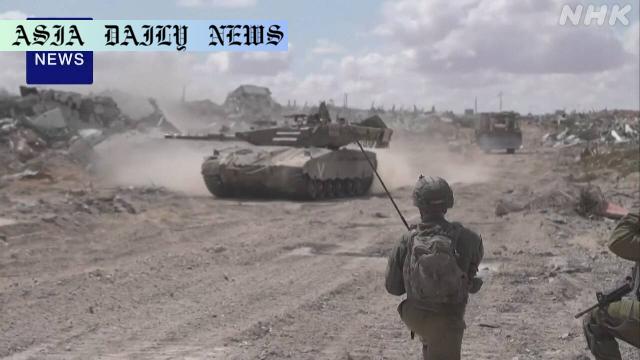Gaza Strip: Israeli forces have gained control of 77% of Gaza’s geographic territory, sparking accusations of international law violations.

Overview: Growing Crisis in the Gaza Strip
The conflict in the Gaza Strip has entered a critical phase as Israeli authorities have apparently gained control over 77% of the region’s geographical territory. According to statements released by Gaza authorities, this development has resulted in widespread displacement of civilians, raising significant humanitarian alarms. The situation in Gaza is dire, with international observers and rights organizations accusing Israel of violating international humanitarian law. The practice of forced displacement, considered illegal under public international law, has reportedly left thousands of Palestinians in an ongoing state of uncertainty and distress.
Shocking Death Toll and Humanitarian Crisis
The human cost of the ongoing conflict has reached staggering heights. Reports from Gaza health authorities indicate a death toll of 53,939 since the outbreak of hostilities in October 2023. In the past 24 hours alone, 38 people have reportedly lost their lives. These numbers highlight the intensity of the military offensives being carried out in the region. Alongside the mounting casualties, access to basic resources such as food, water, and medical supplies continues to deteriorate. Despite the entry of 388 aid trucks into the Gaza Strip over the past week, the measures fall far short of addressing the looming crisis of starvation and material deprivation faced by residents.
International Concerns and Legal Violations
The forced displacement of civilians has triggered widespread concerns regarding the legality of Israel’s military operations in Gaza. Gaza authorities have accused Israel of systematic violations of public international law, which explicitly prohibits the forced transfer or mass deportation of civilians within an occupied territory. The ongoing displacement patterns suggest a deliberate strategy to weaken the socio-economic fabric of Gaza’s population. International humanitarian organizations, including the United Nations, have called for immediate measures to halt forced displacements and ensure the safe delivery of aid to those in need.
Global Implications and Path Forward
The escalating humanitarian crisis in Gaza has broader implications for the region’s stability and international relations. As the conflict continues to intensify, calls for a sustainable diplomatic resolution have gained urgency. International bodies and mediators must prioritize dialogue and negotiation to defuse the situation and prevent further loss of life. Moreover, sustained humanitarian assistance must be organized, with a focus on ensuring daily aid deliveries that reach the most vulnerable communities. A long-term solution to the Gaza crisis will require coordinated efforts involving regional actors, global powers, and the affected populations themselves.
Commentary
Understanding the Humanitarian Crisis in Gaza
The situation in Gaza is one of the most pressing humanitarian emergencies of our time. With the Israeli military now in control of 77% of the Gaza Strip, tens of thousands of residents are being forcibly displaced from their homes. This dynamic not only raises serious ethical and moral questions but also highlights stark violations of international law meant to protect civilian populations. It is heartbreaking to see a community subjected to such levels of destruction and uncertainty, all while international aid efforts struggle to meet even the most basic needs.
The Role of International Law
One of the key legal principles during a conflict is the protection of civilians from harm and forced displacement. However, what Gaza is experiencing appears to be a systematic undermining of these principles. Reports of coercive force and displacement provide an alarming account of how these violations are reshaping life for thousands. As the crisis persists, it becomes even more important for international institutions and governments to stand firmly for justice and press for adherence to humanitarian laws. Ensuring accountability in such circumstances is not just a moral responsibility but a necessary step toward peace.
Hope Amid Devastation
While the statistics and stories emanating from Gaza paint a grim picture, they also underline the critical importance of solidarity and proactive intervention by the global community. It is an unavoidable truth that addressing the humanitarian and legal concerns in Gaza will require dedication not limited to simple discussions but effective action. Whether it is through heightened aid efforts, advocacy for conflict resolution, or the pursuit of justice for affected communities, the road ahead demands a united global front. This challenge may be daunting, but the resilience of the human spirit and the global aspiration for peace provide hope for a better, more humane resolution.


